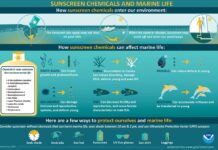Others weren’t so pleased.
“The vote told farmers: We don’t want agriculture here,” says Stoltzfus. “It will have a devastating effect on our employees, vendors, and agriculture in general in Hawai‘i.”
This may be true on Moloka‘i. Monsanto is the island’s biggest employer. If the bill moves forward, many residents stand to lose their jobs. That’s not the only cost, either, says Stoltzfus. Big farm operations support little ones in unseen ways. For example, the island’s small farmers rely on the NAPA Auto Parts store in Kaunakakai for machine parts and equipment. And NAPA relies on Monsanto and Dow AgroScience for 30 percent of its business. If the moratorium forces the seed companies off the island, NAPA might close up shop, leaving the island’s small farmers high and dry.
Several local agriculturalists opposed the GMO moratorium on principle; orchid farmer Darrell Tanaka and coffee grower Kimo Falconer say cash-strapped farmers can’t handle any more onerous regulations. They see this bill as a referendum on pesticides — and one more instance of nonfarmers telling them how to do their jobs.
I ask Stoltzfus about pesticide use on Monsanto’s Maui fields. He declines to share specifics, but says that his field crew uses the same chemicals as conventional farmers, according to the same rules set by the U.S. Department of Agriculture (USDA).
Autumn Ness, who lives downwind of the Kihei farm, disputes this. “When they spray, I can taste it in the back of my mouth,” says the mother and environmental educator. “I have photos of their spray schedule. What they tell the public and the government they’re doing is very different from what they’re really doing. They’re testing chemicals on those fields; they’re not farming.”
Biotech proponents claim their crops are the most heavily regulated of all — monitored by USDA, the FDA and the Environmental Protection Agency (EPA).





